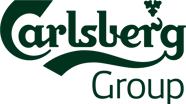
 Regenerative farming in Finland
Regenerative farming in Finland
KOFF Christmas beer, produced at our carbon-neutral Sinebrychoff brewery, is the most popular Christmas beer in Finland. It contains a very special barley from regenerative practices.
The barley used to make it can be traced back to two regenerative farms in Finland, one of them owned by a couple who have been working for seven years to improve soil conditions through regenerative practices, including minimised tillage and planting cover crops to sequester carbon in the soil and prevent nutrients leaking into water once the barley has been harvested. Baltic Sea Action Group confirmed the beer as Baltic Sea-friendly following an assessment of the farm’s cultivation practices, crop selection, rotation and fertilisation. Watch the video below to find out more.
"Today, we know that climate change is threatening the Baltic Sea and hundreds of farmers alike. It is hoped that the regenerative cultivation to improve soil condition will help mitigate climate change and reduce emissions to water bodies. Improving crop security and tolerance for extreme weather naturally motivates farmers." Pieta Jarva, Strategy Director, Baltic Sea Action Group.




Thirsty for more?

Sourcing regenerative malt barley in Denmark
In 2024, our Danish business began sourcing a malt barley grown using regenerative principles, which will move us closer to our goal of achieving a ZERO Farming Footprint.

A new regenerative brew for the UK
Our journey towards 100% regenerative barley in the UK has begun. Furthermore, we are committed to make our brews in the UK with 100% regenerative barley by 2031.

Rethinking the barley supply chain
The barley used to make our Kronenbourg 1664 Blonde beer is changing.
Central & Eastern Europe and India
-
Azerbaijan
-
Belarus
-
Bulgaria
-
Canada
-
Croatia
-
Estonia
-
Greece
-
Hungary
-
India
-
Italy
-
Kazakhstan
-
Latvia
-
Lithuania
-
Serbia
-
Ukraine

